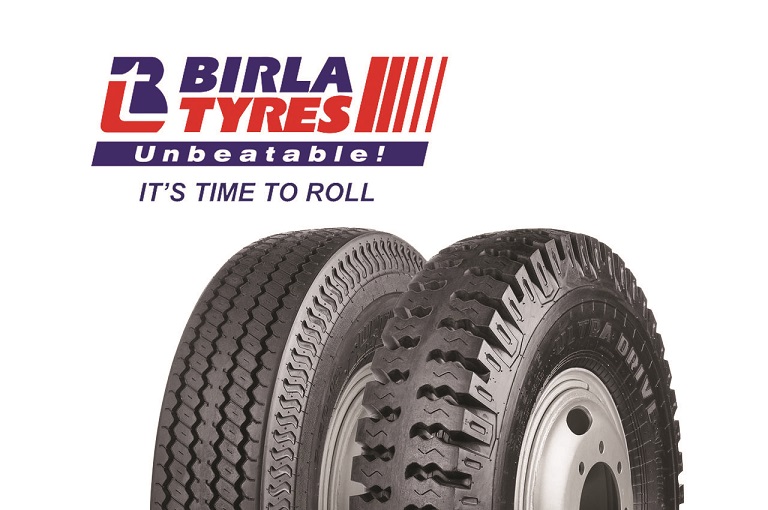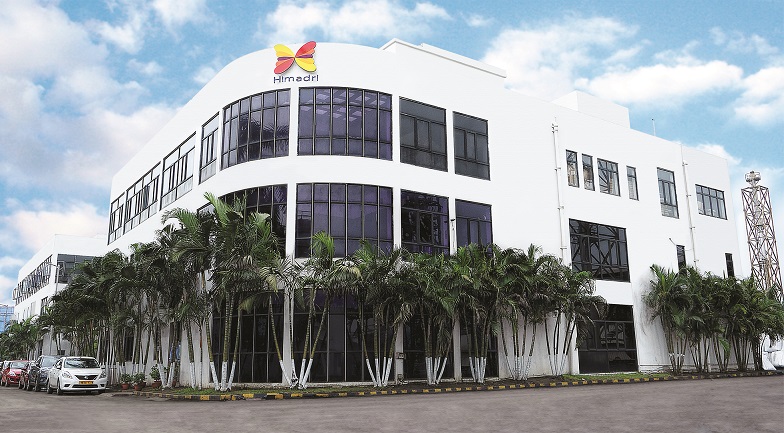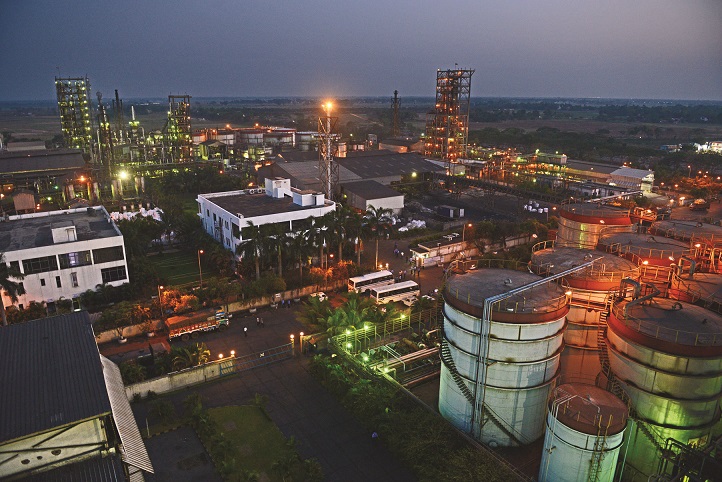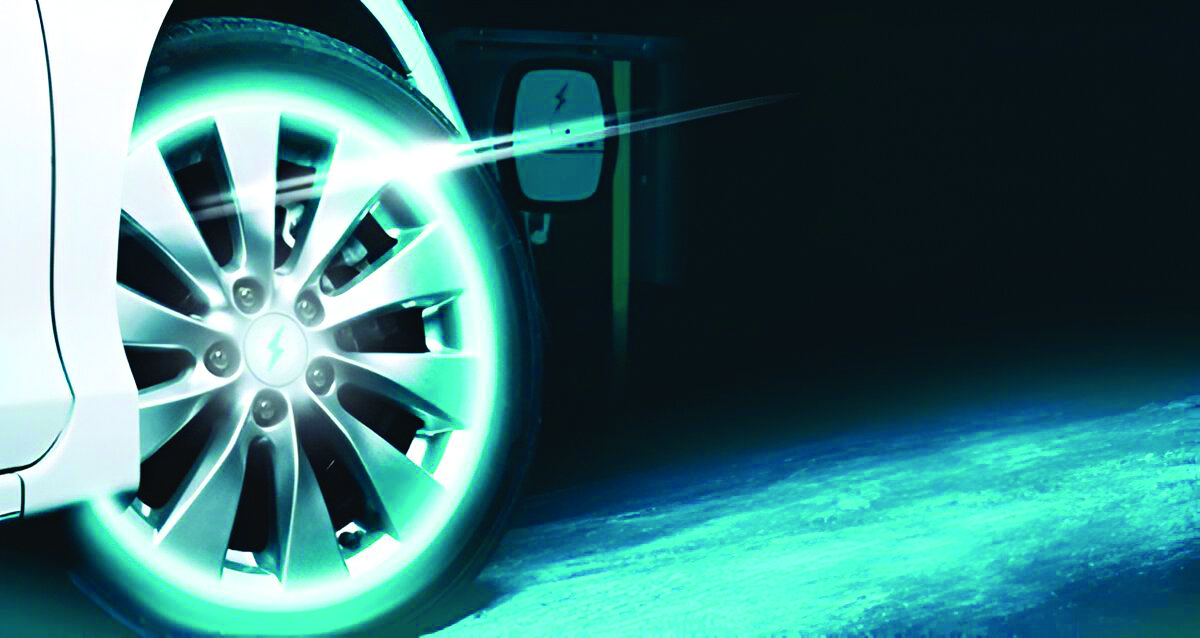- Himadri Speciality Chemicals
- Dalmia Bharat Refractories
- Birla Tyres
- Anurag Choudhary
- carbon black
- tires
- electric vehicle
Kesoram Industries To Himadri Speciality Chemicals: Rebirth Of A Giant
- By Gaurav Nandi
- January 06, 2025

Birla Tyres, once a dominant name on Indian roads, is going a transformation under new ownership. Acquired by Himadri Speciality Chemicals and Dalmia Bharat Refractories, the iconic brand is being restructured to target emerging opportunities within electric vehicles and off-the-highway tyres, supported by strategic innovation and forward integration.
Birla Tyres ruled many Indian roads for over two decades till its fall in 2023. Born as a division of Kesoram Industries in 1991, the tyre maker collaborated with global giant Pirelli shortly after its inception for advanced tyre manufacturing technology.
It started production of truck and bus tyres from its Odisha plant in 1992, and later, between 1995 and 2000, went onto produce tyres across different vehicular categories including passenger, two-wheeler, commercial, farm and heavy earth-movers.
The Kolkata-based manufacturer produced both radial and bias tyres and had a densely spread supply chain with over 170 sales depots within India and an international network across 17 countries during the helm of its operations.
Production capacities had risen to 15 million tyres with revenue crossing INR 200 billion, annually, until the second decade of the 21st century. The company that once held a moderate share in the Indian tyre market, competing with brands like MRF, Apollo Tyres, CEAT and JK Tyre, was now facing operational efficiencies leading to dwindling market share.
Hence, a new era heralded within the operations of one of the major homegrown tyre makers. Furthermore, the axe fell at the core of the entity in 2019 when Kesoram Industries demerged its tyre division into an independent entity called Birla Tyres Limited to focus exclusively on the tyre business.
Soon after, in 2021, financial crisis led the company to file for insolvency under the Indian Bankruptcy Code due to mounting debts and operational losses. Production slowed significantly with plants running below capacity. The company had incurred debt of over INR 100 billion by 2021, and in FY23, Birla Tyres’ reported a net loss of INR 370.7 million.
Between 2022-2023, the company made revival attempts as it sought investors, explored cost-cutting measures, focused on realigning its product portfolio, emphasising two-wheeler tyres and niche markets like electric vehicles, but to no avail.
Alas, in October, 2023, control of Birla Tyres was handed over to a consortium of Kolkata-based Himadri Speciality Chemicals and Dalmia Bharat Refractories.
The rebirth
 According to media reports, Himadri Speciality Chemical and Dalmia Bharat Refractories jointly acquired Birla Tyres under India’s Corporate Insolvency Resolution Process, approved by the National Company Law Tribunal. Birla Tyres faced insolvency due to mounting debt, including claims of INR 115.2 billion by financial creditors. The resolution plan proposed a payment of INR 3.16 billion to secured creditors against admitted claims of INR 109.7 billion.
According to media reports, Himadri Speciality Chemical and Dalmia Bharat Refractories jointly acquired Birla Tyres under India’s Corporate Insolvency Resolution Process, approved by the National Company Law Tribunal. Birla Tyres faced insolvency due to mounting debt, including claims of INR 115.2 billion by financial creditors. The resolution plan proposed a payment of INR 3.16 billion to secured creditors against admitted claims of INR 109.7 billion.
The new owners aimed to revitalise Birla Tyres by leveraging its existing infrastructure, particularly at the Balasore plant in Odisha. While Himadri Speciality Chemicals planned to focus on passenger car tyres, including those for electric vehicles (EV), Dalmia Bharat Refractories proposed to oversee procurement and material supply.
The strategic partnership sought to re-establish Birla Tyres in niche markets, supported by Himadri’s expertise in carbon black production, which constitutes a significant cost component in tyre manufacturing.

Moreover, the consortium decided in November 2023 to invest INR 2.5 billion to operationalise the passenger car radial segment of the fallen giant.
Path forward
Over a year has passed since the controlling interests have been transferred, but the Indian tyre landscape eagerly awaits the resurgence of a much-loved brand. Speaking to Tyre Trends on the re-launching of Birla Tyres, Himadri Speciality Chemicals Managing Director Anurag Choudhary said, “We plan to initially continue producing Birla Tyres existing range but have outlined a strategic shift towards focusing on electric vehicle tyres in the long term. With the electric vehicle market rapidly expanding, the demand for specialised tyres designed to meet the unique requirements of EVs is expected to grow significantly. Additionally, we also aim to prioritise off-the-highway (OTR) tyres as part of our long-term vision, targeting key industrial and off-road sectors.”
Himadri Speciality Chemicals plans to start the manufacturing process from Birla Tyres’ plant in Balasore, which has with a capacity of 400 tyres per day. While the company acknowledges the growing potential of the EV market, it has not yet determined how much of this capacity will be allocated to EV tyre production. This decision will depend on finalising future plans and market strategies.
Additionally, no capital expenditure plans have been finalised yet, but it was informed that the specialty chemicals company is considering the establishment of a dedicated supply chain to support the tyre operations.
Alluding to why a specialty chemicals company invested in acquiring a tyre company, Choudhary averred, “Our acquisition of Birla Tyres aligns with a long-standing strategy of forward integration. Historically, we have evolved by building on core processes, starting with coal tar distillation and progressing into areas such as oils, carbon black and eventually speciality black products.”

“This forward-thinking approach has also driven the development of special coal tar-derived materials for applications like anode materials in lithium-ion batteries, reflecting our commitment to innovation and research and development. The decision to acquire Birla Tyres is a natural extension of this strategy. Tyre production uses a significant proportion (almost 26 percent) of carbon black by volume, making it a logical step for the company to integrate downstream into the tyre manufacturing sector. This acquisition not only ensures a steady demand for its carbon black but also positions the company to leverage its expertise in specialty materials and innovation for future growth,” he added.
When asked about plans to introduce sustainable materials in the revival of Birla Tyres, the executive indicated that the company is steadfast in its plan to foster a circular economy and is exploring ways to enhance the reusability of existing materials including carbon black but emphasised that these efforts are still in the research and development phase.
Regarding competitiveness in the tyre market, he stated that the company is devising a comprehensive strategy. As for the challenges of entering the tyre industry, he acknowledged that being a newcomer brings a range of hurdles. However, he viewed these challenges as opportunities to innovate and carve a niche in the market.
Forward integration
Himadri Speciality Chemicals in also setting up a lithium-iron phosphate plant in Odisha to further its expansion into the automotive sector. Furthermore, it also sees growing demand for carbon black within the Indian market.

Commenting on opportunities in India's carbon black market, Choudhury highlighted, “Himadri is focusing heavily on speciality carbon black, a high-value segment with diverse applications. We have a current production capacity of 60,000 metric tonnes and plan to expand it to 130,000 metric tonnes, positioning us as the world’s fourth-largest producer in this niche. We are also focusing on speciality carbon black for EV tyres.”
When asked about the potential of recovered carbon black, he expressed doubts about its ability to replace virgin carbon black due to quality constraints. While the company supports sustainability under its ESG commitments and is a signatory to the United Nations Global Compact, recycled carbon black is expected to remain a small, complementary product in its portfolio.
Speaking on the lithium-iron phosphate plant in Odisha, Choudhary mentioned that the first phase is designed to produce 40,000 metric tonnes, supporting 20 gigawatt-hours (GWh) of battery production. The project involves a capital expenditure of INR 113 billion and marks a significant step in Himadri’s strategy to support the EV and battery sectors.
Moreover, he sees significant growth opportunities in the EV market, which he mentioned is at a critical inflection point, leading to exponential adoption. The company is investing in materials essential to the EV ecosystem. It has focused on developing key battery components such as cathodes and is conducting research on anodes, which together account for 65 percent of a lithium-ion cell’s cost.
Discount Tire Earns Spot On Glassdoor's Best Places To Work 2026 List
- By TT News
- February 04, 2026

Discount Tire has earned a prominent position on Glassdoor's Best Places To Work 2026 list, ranking 14th in Consumer Services and within the top 100 US employers. This distinction is awarded to organisations with over 1,000 employee reviews on Glassdoor and a minimum rating of 3.5. For the Scottsdale-based retailer, with more than 1,250 locations nationally, the honour underscores a long-standing commitment to its workforce.
The company cultivates a people-first culture for its over 30,000 employees by providing substantial career growth, thorough training, leadership development and competitive benefits. This philosophy, centred on serving others and empowering personal goals, previously earned Discount Tire top Glassdoor rankings from 2018 through 2021. The latest recognition reaffirms its status as an employer dedicated to fostering a supportive and progressive workplace.
Dean Muglia, Chief Executive Officer, said, "We treat our people like family. We're honoured to be recognised by both current and former employees and Glassdoor as a best place to work. We strive every day to deliver the most inviting, easy and safe experience possible for our people and our customers."
Michael Zuieback, Executive Chairman, said, "Through six and a half decades of growth, our primary commitments have stayed true: We want to take care of people and help make more dreams come true.”
Radar Tyres Secures Strategic Multi-Year Partnership With Cricket South Africa
- By TT News
- February 04, 2026

Radar Tyres has entered a significant, multi-year global partnership with Cricket South Africa, a strategic move to build its brand within a sport enjoyed by a worldwide audience. This alliance grants the company headline sponsorship for the Proteas Men’s and Women’s T20 International sides, alongside associate partnership status for their ODI and Test matches. Radar will also be the headline partner for South Africa’s Under-19 national teams.
The collaboration provides substantial visibility, featuring exclusive logo placement on both match and training kits, with the new T20I apparel already unveiled. For Radar, this investment is a key step in leveraging high-profile platforms to enhance global brand recognition, all while maintaining its commitment to providing high-quality, value-driven tyre products.
G S Sareen, President and CEO, Omni United, said, "Becoming the Global Partner of the Proteas marks a significant milestone in Radar Tyres' global brand journey and reflects our belief in sport as a powerful platform to build brand equity, strengthen dealer support, enhance trust and credibility and connect with households worldwide. Through this partnership, we are able to engage with cricket fans both locally and globally while reinforcing Radar Tyres' as a reliable, performance-driven brand committed to delivering premium-performance at an accessible price point."
Pholetsi Moseki, Chief Executive Officer, CSA, said, "CSA is extremely proud to partner with Radar Tyres, an organisation that shares our values and commitment to excellence. This partnership is a significant milestone, securing support not only for our senior teams but for our junior teams as well. This partnership reflects our deliberate approach to working with like-minded organisations, guided by a long-term vision of developing the game, supporting our players and delivering memorable experiences for fans. Radar Tyres' support also reinforces CSA's commitment to excellence and inclusion, strengthening our ability to drive high performance across all levels."
AZuR Shortlisted For German Award For Sustainability Projects 2026
- By TT News
- February 03, 2026

For the second consecutive year, the Alliance for the Future of Tyres (AZuR) has been shortlisted for the German Award for Sustainability Projects, following its 2025 win. This renewed nomination underscores the jury’s recognition of AZuR as a pioneering force in sustainability, particularly for its dedicated efforts to advance tyre retreading as a core component of a circular economy. The 2026 award ceremony will be held under the patronage of Brigitte Zypries on 17 September in Berlin.
AZuR’s multifaceted initiative extends well beyond theoretical advocacy. Its work gained significant international attention with the Retreading Summit, held in September 2025 at KRONE Trailer in Werlte. This event convened experts from industry, politics, academia and media for two days of intensive dialogue on the potential, challenges and necessary policy frameworks for tyre modernisation, leading to the launch of concrete action plans. Furthermore, the alliance drives progress through strategic communications and direct support for flagship projects, such as the new passenger car tyre retreading facility established by Rigdon in Pfaffenhofen.
Central to AZuR’s mission is transforming public perception by demonstrating that worn tyres are valuable resources, not waste. Through ongoing awareness campaigns, it highlights the substantial ecological and economic benefits of retreaded tyres, which can be refurbished multiple times to conserve raw materials, reduce climate impact and offer cost-effective solutions. The German Award for Sustainability Projects, judged by a panel chaired by Prof Dr Claudia Kemfert of DIW Berlin, evaluates entries based on their innovation, impact and relevance to a sustainable future. AZuR’s repeated shortlisting affirms that its model for a tyre circular economy is a replicable and exemplary system with groundbreaking potential.
- Manish Maharaj
- Balkrishna Industries Ltd
- BKT Tyres
- Apollo Tyres Ltd
- Tyre Industry
- Business Finance Leadership
Manish Maharaj Joins BKT Tyres as GM & Head of Business Finance
- By Sharad Matade
- February 02, 2026

Seasoned tyre industry executive Manish Maharaj has embarked on a new professional chapter, joining Balkrishna Industries Ltd (BKT Tires) in a senior leadership capacity after a distinguished 11-year tenure with Apollo Tyres Ltd.
In his new role at BKT Tires, Maharaj has been appointed General Manager and Head of Business Finance, where he will focus on enhancing financial strategy, driving performance-driven growth, and building scalable systems to support BKT’s global expansion ambitions.
“I am thrilled to begin a new chapter with BKT Tires,” said Maharaj.
Maharaj’s career at Apollo spanned multiple strategic roles in one of the world’s leading tyre manufacturers, most recently serving as Regional Chief Financial Officer for South East Asia, the Middle East and Africa, and later as Business Head for South East Asia. In these capacities, he led multi-market commercial and financial operations, driving robust business performance across diverse cultural and economic environments.
At Apollo, Maharaj was responsible for charting growth strategies in fast-evolving markets, strengthening distributor partnerships, and reinforcing brand positioning across key ASEAN economies. His leadership coincided with initiatives to expand premium brand presence in Thailand, Malaysia, Philippines & South Korea and foster deeper retail engagement across the ASEAN region.







Comments (0)
ADD COMMENT